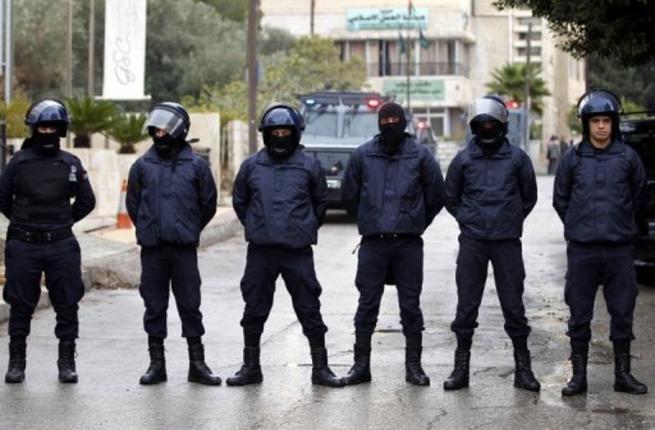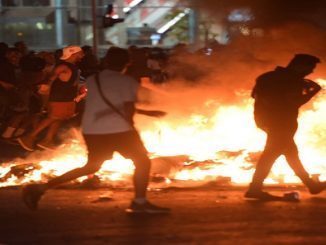
Protesters have clashed with the police and paramilitary units at a demonstration in a town south of Amman, demanding jobs and better economic conditions for their region, Al Jazeera reported.
Residents of Dhiban have clashed with paramilitary units, demanding employment and better economic conditions in the region.
Residents and tens of protesters in the town of Dhiban, 70km south of the capital, had erected a tent in the town’s main square, which they used as headquarters while they negotiated with the police and government officials.
The police took down the tent overnight on Wednesday and dispersed the protesters by force.
Witnesses quoted by the local media accused the government of using force against them as they protested against their economic conditions “peacefully”.
Unemployment in Jordan is about 28 percent, according to World Bank figures.
Witnesses reported that the security forces shut down some of the roads leading to the village. Additional closures were caused by protesters burning tires on several roads.
The clashes lasted through the night, with police using tear gas to disperse the protesters, resulting in a number of respiratory problems, according to local residents.
Reports indicated that the protesters burned down the house of the brother of Dhiban’s Police Chief, while pictures of the burned house were circulated by activists. Khaberni was not able to confirm these claims.
The protests come just days after Jordan’s government introduced sweeping tax hikes on everything from gasoline to car transfer fees, alcohol, and cigarettes. The price of electricity is also expected to go up next year.
The austerity measures, taken in order to unlock grants and loans from the International Monetary Fund (IMF), have been seen as widely unpopular in a country with high unemployment, increasing cost of living, and additional pressures from hosting a large Syrian refugee population.
Last month, five unemployed men attempted to commit suicide by jumping off a building, hoping to draw attention to their plight.
The district of Dhiban is home to about 50,000 people and is one of the poorest regions in Jordan. The majority of its residents rely on government agencies and the military for employment.
“The main demands of the residents of Dhiban are economic development and to have investment in the region in order to create jobs for people to support their families,” Jamal Mohamad, a resident of Dhiban, told Al Jazeera.
“We have no political demands other than improving our dire conditions,” he said.
A statement by the paramilitary police, the Gendarmerie, said three of its troops were wounded by gunshots fired from the direction of the protesters.
It described the protesters as “outlaws” and said it was “conducting its duty to arrest several law breakers” when its members were shot.
The statement said the police had arrested 22 protesters.
Dhiban was the center of the so-called Arab uprising in Jordan in 2011 when it ignited wider protests in the country, mainly over poor economic conditions.
It was the first Jordanian city to hold public demonstrations against the government’s economic policies.
Many Jordanians in the region say the main reason for the government’s alleged poor economic planning is “corruption” and lack of commitment to improve the economic conditions for the middle class.
Jordan is a country of about seven million people with a total GDP of $35bn, according to the World Bank. The average yearly income is about $5,000, which makes the country one of the poorest in the region.



